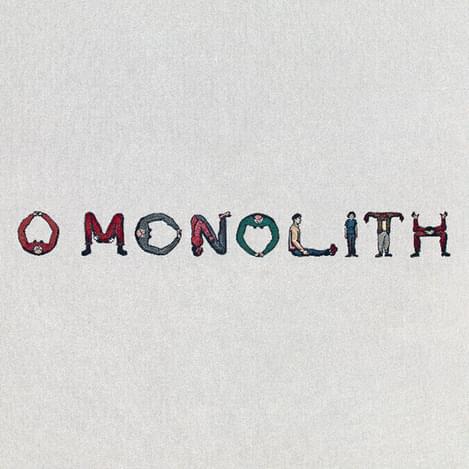Squid hammer home their iconoclastic moxie with O Monolith
"O Monolith"

With their second LP, O Monolith, Brighton-based quintet Squid navigate a well-sculpted sound without compromising their iconoclastic moxie.
As expected, frontman Ollie Judge oozes charisma. If the band’s debut, Bright Green Field, spotlighted him playing the punk shaman, Monolith shows him fusing the roles of glossolalic poet and doomsday analyst.
Again enrolling Dan Carey as producer, the album was recorded in Peter Gabriel’s Real World facilities rather than Carey’s basement studio. Think a family that’s moved out of a single-wide into suburban digs where each person has their own room. The result is a sequence that sounds more expansive and sublimely mapped, yet perhaps less combustive, less raggedly urgent.
I.e., Monolith is triumphant on its own terms. Opener “Swing (In a Dream)” unfurls as a reference to the limbos we traverse in the course of a day or life. Judge’s vocal is relatively collected as he introduces his vision, a confluence of Dadaism, deconstruction, and psychedelics (“to live inside the frame / and forget everything / a swing inside a dream / and all they’ll do is scream”). Quirky beats, hooky guitar licks, and trumpet blasts cohere and diverge, the track oscillating between restrained cacophonies and purgatorial lulls.
On “Green Light”, guitars erupt, accompanied by an agile bass part and busy drums, recalling Black Midi’s adrenalized arrangements. “If You Had Seen The Bull’s Swimming Attempts You Would Have Stayed Away” features wiry guitar fills, synthy splashes, and a palimpsest of backup vocals draped across a bass-heavy welter. Judge’s mercurial sprechgesang brings to mind a zeitgeist-savvy Jim Morrison.
With Monolith, Squid has consistently streamlined the polyrhythmic forays of Field. That said, “Undergrowth” is familiarly bouncy, replete with funk-leaning guitar and bass licks. “The Blades”, too, is built around a dance-y bass groove and infectious beats. As the soundscape ripples and pulses, Judge offers cumulatively disturbing images (“broken bones”, “noise”, “cameras”, “another man’s hand on the joystick”), summing up his sociopolitical view (“You glowing people lost your way”).
“Devil’s Den”, meanwhile, veers in a more austere direction a la Fontaines D.C., Protomartyr, and BCNR, among other Joy Division-indebted acts. The track concludes with juxtapositions of textural minimalism, staccato intonations, and riffy runs. “Siphon Song” also navigates a spacey environment, with Judge making use of a vocoder, which adds a vintage vibe to the mix. Demonstrating their gift for dramatic segues, the band pivot midway into a fuzzier sprawl. A hinted-at crescendo never occurs, pointing to the illusory nature of catharsis.
Monolith is less radically individual than Field, a still distinct yet replicable template from a band with enormous potential. Then again, Monolith, like Field, is stylistically far-ranging, the band as adept as ever when it comes to working with polarities, including cohesion/dissolution, maximalism/minimalism, and ecstasy/dejection.
“How hard can it be / to live a normal life?” Judge asks. Good question, particularly when “normal” has been exposed as an invalid and even oppressive gauge. We live with fragments, spectrums, collages, and days shot through with beauty and terror. Squid are the house band for our post-normative existence.
Get the Best Fit take on the week in music direct to your inbox every Friday

Prima Queen
The Prize

Femi Kuti
Journey Through Life

Sunflower Bean
Mortal Primetime





